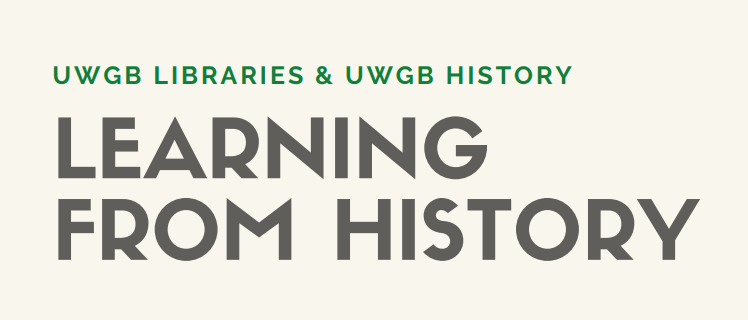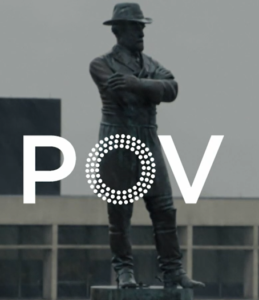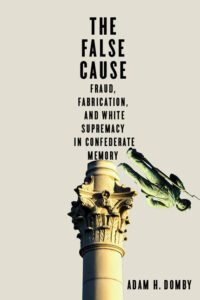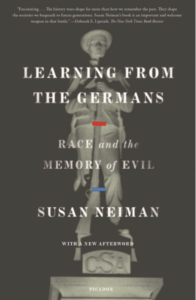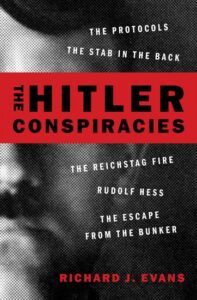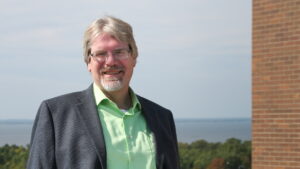
Our understanding of history plays an important role in shaping our identities, individually and as a community, and in so doing determines how we act in the future. However, there are different ways to understand history. History, as a discipline, may be understood to be the “reasoned reconstruction of the past rooted in research”, as David Blight has put it. In contrast, the public recollection and commemoration of the past is something different – collective historical memory – which may differ in important ways from the results of historical research. Like history, collective memories of events may also be shaped into coherent narratives, often conveniently forgetting certain facts that do not fit into that narrative.
In the past year and a half, two developments have brought to the fore the role history plays in society, as a discipline and as a form of collective memory. In the summer of 2020, resulting from the Black Lives Matter protests that spread around the world, there has been a wave of groups calling for the removal of confederate statues in the United States and monuments to a variety of imperialists in other countries. Such calls were met by claims that statues must be preserved in order to remember history. In 2021, there have been numerous criticisms of Critical Race Theory and calls for it to be eliminated from elementary and high schools, even though it has rarely been taught outside of Law Schools. Several states now have passed laws in an effort to eliminate the influence of the theory with a significant impact on how history is taught since such laws often address how race may be taught in schools.
The Learning from History series will explore a variety of issues around history as a discipline, collective historical memory, recent criticism and public debate about history, and what we may learn from history and our collective memory of it. Please join us!
Events are sponsored by the UWGB History department, the UWGB Libraries, the UWGB German department, the College of Arts, Humanities, and Social Sciences, the Green Bay Film Society, the PBS POV Film Series, the Neville Museum, and the German Embassy.
Learning From History Series Fall 2021 Schedule
C. J. Hunt’s Documentary The Neutral Ground
Spetember 15th, 7:00
The Neutral Ground documents New Orleans’ fight over monuments and America’s troubled romance with the Lost Cause. In 2015, director CJ Hunt was filming the New Orleans City Council’s vote to remove four confederate monuments. But when that removal is halted by death threats, CJ sets out to understand why a losing army from 1865 still holds so much power in America.
This film screening is a virtual event hosted by UWGB, PBS POV, and The Neville Museum.
This event is a collaboration with POV, PBS’ award-winning nonfiction film series. For more information, please see: https://www.pbs.org/pov/.
Book Discussion: Adam Domby’s The False Cause: Fraud, Fabrication, and White Supremacy in Confederate Memory
Spetember 23rd , 6:00: Discussion led by Professor Dan Kallgren (History and Humanities)
Professor Dan Kallgren will lead a discussion of Adam Domby’s The False Cause: Fraud, Fabrication, and White Supremacy in Confederate Memory.
Domby explores how fabricated narratives about the Civil War’s cause, Reconstruction, and slavery shaped the Lost Cause myth and obscured the past and been used to buttress white supremacy in ways that resonate to this day.
Domby’s book is available electronically from the Cofrin Library.
This event is sponsored by the Department of History and the Cofrin Library.
Critical Race Theory and the Teaching of History: Lessons from Germany
October 15th, 1:00: Professors David Voelker, Mark Karau, and Clifton Ganyard.
Join Professors David Voelker, Mark Karau, and Clifton Ganyard (all professors of History and Humanities at UW-Green Bay) in their discussion of Critical Race Theory and the Teaching of History: Lessons from Germany.
Of late there has been a contentious debate in the U.S. over the teaching of “Critical Race Theory” and whether too much focus has been on the crimes and sins in U.S. History. In July a group of historians published an Opinion piece in the New York Times critical of anti-CRT laws, writing: “These measures would, by way of comparison, make Germany’s uncompromising and successful approach to teaching about the Holocaust illegal, as part of its goal is to infuse them with some sense of the weight of the past and (famously) lead many German students to feel anguish about their ancestry.” Drawing on philosopher Susan Neiman’s book Learning from the Germans, this panel of UW-Green Bay historians will discuss the controversy surrounding CRT and what we can learn from teaching German history but also what it means for U.S. History.
Sponsored by the Department of German and the German Embassy’s Time to Act: German-Jewish Relations Past and Present grant.
Book Discussion: Susan Niemann, Learning from Germany: Race and the Memory of Evil (in-peson and virtual)
October 21st , 6:00: Discussion led by Professor Mark Karau
Professor Mark Karau (History and Humanities at UWGB) will lead a discussion of Susan Niemann’s book Learning from Germany: Race and the Memory of Evil.
In the wake of white nationalist attacks, the ongoing debate over reparations, and the controversy surrounding Confederate monuments and the contested memories they evoke, Susan Neiman’s Learning from the Germans delivers an urgently needed perspective on how a country can come to terms with its historical wrongdoings. Neiman is a white woman who came of age in the civil rights–era South and a Jewish woman who has spent much of her adult life in Berlin. Working from this unique perspective, she combines philosophical reflection, personal stories, and interviews with both Americans and Germans who are grappling with the evils of their own national histories.
Several copies of Neiman’s book are available for loan at the Cofrin Library.
Sponsored by the Department of History and the Cofrin Library.
Book Discussion: Richard J. Evans, The Hitler Conspiracies: The Protocols – The Stab in the Back – The Reichstag Fire – Rudolf Hess – The Escape from the Bunker (in-person and virtual)
November 10th , 6:00: Discussion led by Professor Clifton Ganyard
Professor Clifton Ganyard (History and Humanities at UWGB) will lead a discussion of the book The Hitler Conspiracies: The Protocols – The Stab in the Back – The Reichstag Fire – Rudolf Hess – The Escape from the Bunker.
Conspiracy theories have lately proliferated, powered by the Internet and social media, as well as by the declining influence of the traditional gatekeepers of facts and information. In his new book, Richard J. Evans, one of the world’s leading historians of the Third Reich, explores this new golden age of conspiracy theories and what underlies it. To do that, he focuses on five of the most enduring conspiracies theories of the Nazi period, including those that fueled Hitler’s rise in the first place.
Evans’ book is available electronically from the Cofrin Library.
Sponsored by the Department of History and the Cofrin Library.
Conspiracy Theory and History
November 29th , 6:00: Keynote Conversation with Professor Clifton Ganyard
As a part of the Learning from History Series and Common CAHSS: Truth: Information, Misinformation, and Democracy, join Professor Clifton Ganyard (History and Humanities at UW-Green Bay) in his presentation “The Truth is Out There: Conspiracy Theory and History”.
Are we living in an age of conspiracy theories? With the prevalence of conspiracy theories – from COVID-19 to QAnon to “white replacement” to 9/11 – it may seem like we do. Dr. Ganyard will discuss conspiracy theories from an historical perspective and consider what, if anything, is different about our contemporary “post-truth” world.
Professor Clif Ganyard is Associate Provost for Academic Affairs and Associate Professor of Humanistic Studies and History. His research and teaching interests include modern German and Japanese history and culture, science fiction, and jazz, and he has published work on German political culture, including Artur Mahraun and the Young German Order: An Alternative to National Socialism in Weimar Political Culture. A noted teacher, he was awarded UWGB’s Founder’s Award for Excellence in teaching in 2010 and the UW Board of Regents Teaching Excellence Award in 2014. In his current position as Associate Provost, Ganyard oversees institutional programs and services that support student learning and instruction, including international education, institutional research and assessment, faculty professional development, academic program assessment, university accreditation, and commencement ceremony planning.
Learning from History: Monuments, Critical Race Theory, and the Teaching of History
November 30th , 6:30: Professors Heidi Sherman, Mark Karau, David Voelker, and Jillian Jacklin
As a part of the Learning from History Series and Common CAHSS: Truth: Information, Misinformation, and Democracy, professors Heidi Sherman (History and Humanities at UW-Green Bay), Mark Karau (History and Humanities at UW-Green Bay), David Voelker (History and Humanities at UW-Green Bay), and Jillian Jacklin (History and Democracy and Justice Studies at UW-Green Bay) will hold a panel and discuss what can be learned from history.
In the past year and a half, two developments have brought to the fore the role history plays in society, as a discipline and as a form of collective memory. In the summer of 2020, resulting from the Black Lives Matter protests that spread around the world, there has been a wave of groups calling for the removal of confederate statues in the United States and monuments to a variety of imperialists in other countries. In 2021, there have been numerous criticisms of Critical Race Theory and calls for it to be eliminated from elementary and high schools. Several states now have passed laws in an effort to eliminate the influence of the theory with a significant impact on how history is taught since such laws often address how race may be taught in schools. This panel will examine the impact these developments have had on how history is and may be taught.
Sponsored by the Department of History and the Cofrin Library.
